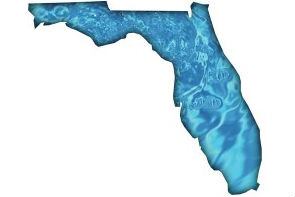Florida’s legislative session has ended, with mixed results among bills affecting the pool/spa industry.
An omnibus deregulation bill that the state has tried to pass for a few years finally made it through both houses and awaits the governor’s signature.
The wide-ranging legislation included changes to the state’s licensing qualifications. For instance, it would allow for those holding licenses from different states or territories to gain their Florida license if they held the license for at least 10 years, and that license was active within two years of applying for Florida’s. Officials may consider the applicant’s technical competence and whether that individual has had a license revoked or suspended, or was issued some other type of penalty.
The bill also reduced the size of the Florida Building Commission from 27 to 19 seats. While the legislature briefly considered a proposal to eliminate the seat designated for a pool/spa-industry representative, the FSPA lobbied to preserve that seat and succeeded.
The new law also states that individuals do not have to take the building code portion of the contractor licensing test if they have earned a four-year degree in a construction-related major from an accredited university. Instead, they would only have to take the business and finance section of the exam.
In the future, FPSA may pursue trying to change that clause to the reverse. “FSPA’s position is that everybody needs to have a competency exam for licensing, regardless of what degree you have,” said FSPA Government Affairs Manager Dallas Thiesen. “If anything, exempt them from the financial portion of it and have them take the building exam. That’s what matters for them to become competent contractors.”
Two industry-backed bills did not make it through. House Bill 1169, which would have exempted pool/spa subcontractors from the specialty license requirement, was held up in a senate committee, along with a few dozen other bills at the end of the legislative session, after having handily passed the state house, Thiesen said.
“Our board will consider bringing that back next year,” he added.
A bill that would have allocated $200,000 to FSPA’s nonprofit foundation to help fund and expand childhood learn-to-swim programs died, along with other first-time budget proposals, to preserve funds for the state’s Covid-19 response.
“We’re going to bring that back next year after the state budget has been reconciled with the Covid-19 response,” Thiesen said.
A bill opposed by FSPA died in both houses. House Bill 707 and Senate Bill 1124 would have required that the state reauthorize professional licenses periodically, or they would cease to be made available.




